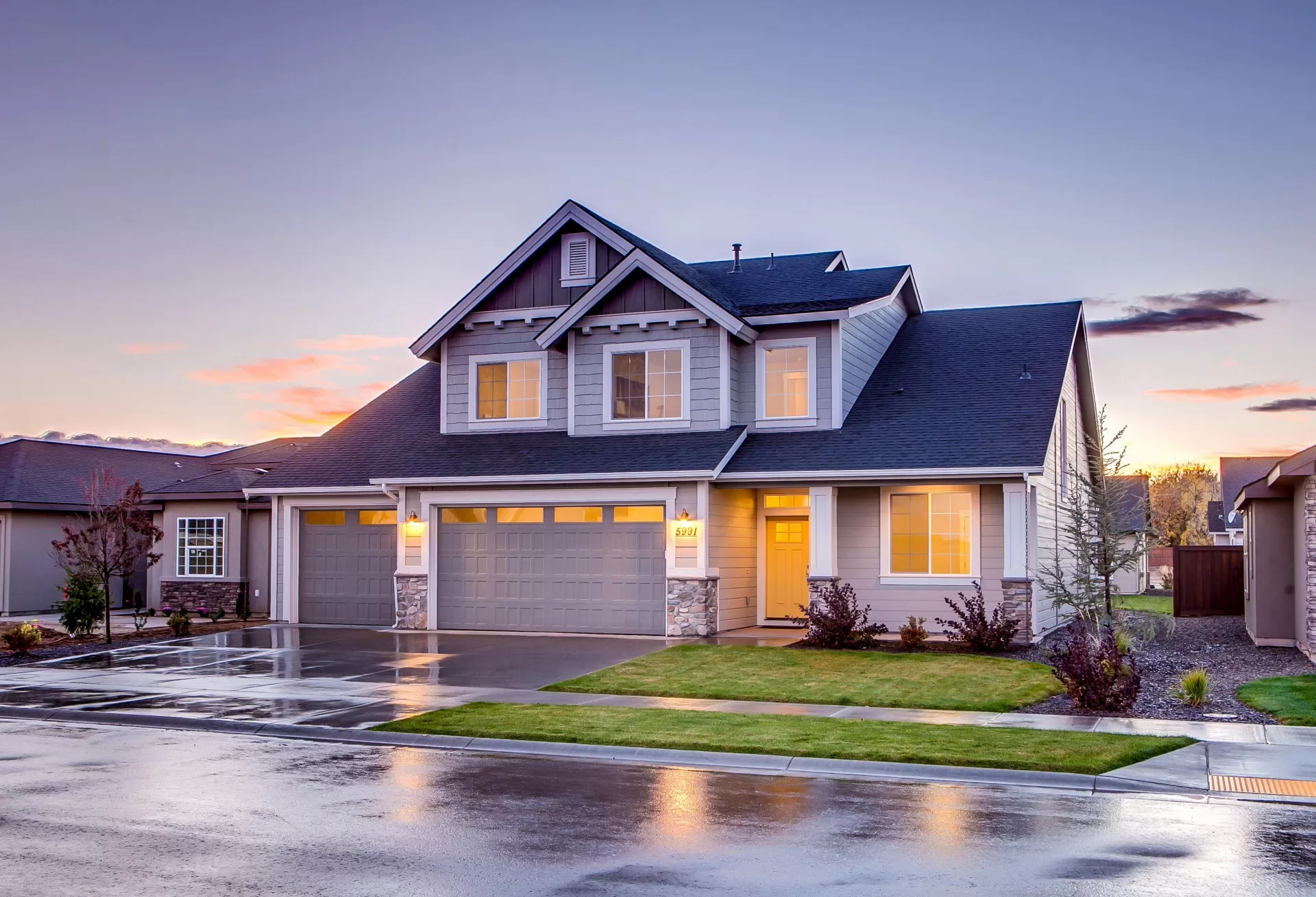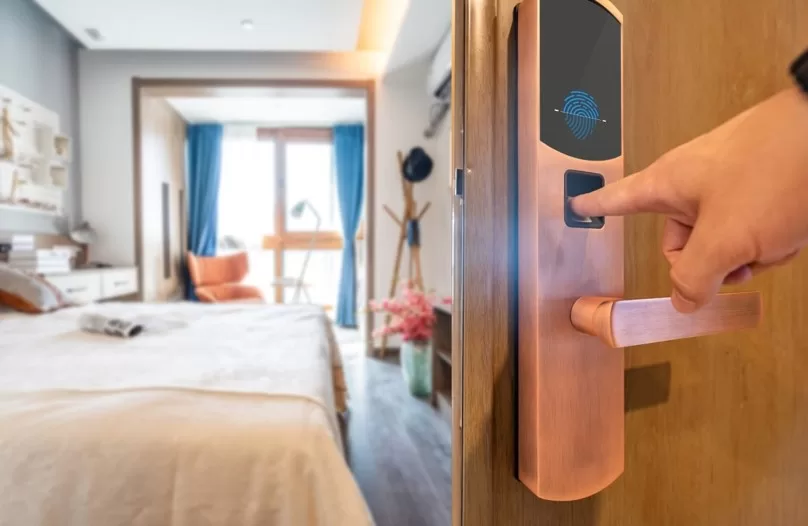Is your indoor climate leaving you uncomfortable or unsatisfied? HVAC systems play a crucial role in maintaining the comfort and air quality in homes. Understanding their nuances can significantly improve your indoor environment.
The key to mastering your indoor climate lies in attaining a comprehensive understanding of how cooling & heating systems work. Whether you want to reduce your energy bills or maintain optimal temperature throughout the year, this is your guide.
Discover how to leverage HVAC technology to suit your needs, create a healthier space, and ensure maximum efficiency. With this essential HVAC guide, you’ll have the knowledge needed to master your indoor climate.
HVAC Basics
The vital role of heating, ventilation and air conditioning (HVAC) systems in maintaining indoor climate is often overlooked until issues arise.
HVAC Components
An HVAC system is a complex network consisting of several key components: the furnace or heater, the central air conditioner, and the ventilation system.
Each part plays a critical function in regulating temperature, removing unwanted air particles, and ensuring a comfortable indoor environment.
Heat Transfer Principles
At its core, an HVAC system revolves around the principles of heat transfer. The system generates warmth or coolness by absorbing or releasing heat.
Its capability to effectively adjust temperatures contributes to your overall comfort at home or work.
Maintenance Essential
Regular maintenance is crucial to ensure the efficiency of your HVAC system. Proper upkeep extends its lifespan, improves function, and prevents costly repair needs.
A well-maintained HVAC system not only provides optimal indoor comfort but also reduces energy consumption. Learn more about maintaining your own system here.
Choosing the Right System
When it comes to maintaining an optimal indoor climate, picking an appropriate HVAC system is critical. Your selection influences comfort and energy usage.
A desirable HVAC system should satisfy your specific needs. It’s crucial to consider your location’s climate, the size of your space, and energy efficiency ratings.
- Size: An efficiently sized system is essential. Systems that are too small or large are ineffective, expensive and could promote wear and tear.
- Type: Different types of HVAC systems exist. They include central air conditioning, ductless mini-split, window unit, portable unit or geothermal.
- Energy Efficiency: Energy-efficient systems preserve resources and save on electricity bills. Look out for high SEER (Seasonal Energy Efficiency Ratio) ratings.
- Maintenance: Regular maintenance ensures optimal operation and longevity of your HVAC system. Choose a system with straightforward maintenance requirements.
Action towards obtaining the most suitable HVAC system will improve your indoor climate substantially. Resulting in elevated comfort and lowered energy costs.
Your investment in a proficient HVAC system is a step towards mastering the indoor climate while promoting environmentally friendly solutions alongside financial savings.
Smart HVAC Options
Understanding your HVAC options can revolutionize your home’s indoor climate. Today’s smart systems prioritize efficiency, comfort, and cost-effectiveness, each tailored to your unique needs.
The Power of Programmable Thermostats
A programmable thermostat provides ultimate control over your home’s temperature. These devices automatically adjust settings based on your routines, optimizing both comfort and energy usage.
Investing in HVAC Zoning Systems
HVAC zoning systems allow personalized temperature settings for different areas in your home. This means optimal comfort and no wasted energy on rarely used rooms.
Maximize Efficiency with Geothermal Systems
Geothermal heating and cooling systems are incredibly efficient as they leverage the earth’s constant temperature. This option offers both utility savings and environmental benefits.
Remote Control through WiFi Thermostats
WiFi thermostats are another excellent smart HVAC option. They enable remote control of your heating and cooling, allowing adjustments even when you’re not home.
Breathe Easier with Air Purifiers
To enhance indoor air quality, consider incorporating air purifiers into your HVAC system. These devices effectively remove pollutants and allergens, promoting healthier breathing conditions.
Maintenance Planning
Your HVAC system requires regular checks to maintain peak performance. It’s best to plan maintenance tasks in a systematic, proactive manner.
Beyond examining the physical parts, it’s crucial to consider the overall system functionality. Efficiency and longevity greatly depend on quality maintenance.
- Planned preventive maintenance: This reduces the likelihood of abrupt breakdown of HVAC components, saving you from costly repairs or replacements.
- Compliance with safety regulations: Regular maintenance helps ensure your HVAC system meets local safety and building codes, preventing penalties or fines.
- Careful monitoring of system performance: Routine checks allow detection of any drop in effectiveness, enabling immediate corrective actions to restore optimal performance.
- Saving on energy costs: Well-maintained HVAC systems operate more efficiently, leading to lower energy consumption and decreased utility bills.
Avoid waiting for serious issues to occur before conducting HVAC maintenance. Regularly scheduled inspections can identify minor problems before they escalate.
Ultimately, an efficiently running HVAC system provides a comfortable and healthy indoor climate that enhances your overall living experience.
DIY HVAC Troubleshooting
Handling minor HVAC issues on your own can save you both time and money.
Beyond simply adjusting the thermostat, there’s more you can do without calling a professional.
The basics begin with understanding your unit and implementing regular maintenance practices.
- Making Regular Inspections: Look for signs such as abnormal noises, reduced efficiency or unusual odors.
- Cleaning or Replacing Filters: This should be done at least once every three months, or monthly if you have pets.
- Clearing the Condenser Coils: Dust and debris can accumulate on these components impacting overall efficiency.
- Maintaining Thermostat: Regular checking ensures optimal performance and detects any irregularities early on.
Additionally, remembering to switch off the power before any inspections will safeguard against unnecessary incidents.
Troubleshooting your HVAC system doesn’t have to be daunting once you equip yourself with the right knowledge.
This beginner’s guide offers a starting point towards mastering indoor climate control at home.
Improving Indoor Air Quality
To master indoor climate control, the foremost concern is improving air quality. Good air quality translates to healthier inhabitants and an enjoyable living atmosphere.
How Do I Improve My Indoor Air Quality?
The solution lies in enhancing ventilation, regular cleaning, and investing in good quality air purifiers and HVAC filters that remove pollutants effectively.
Does Planting Indoor Plants Improve Air Quality?
Yes, indoor plants can assist in absorbing toxins, producing oxygen, and maintaining humidity levels. They offer a natural boost to indoor air quality.
How Often Should I Change My HVAC Filter?
You should replace your HVAC filter every one to three months. Regular filter changes contribute significantly to preserving air quality and efficiency of HVAC systems.
What Role Does Humidity Play in Indoor Air Quality?
Humidity affects comfort level, health factors, and home durability. Maintaining an ideal humidity level can prevent the growth of harmful bacteria and molds.
Can Opening Windows Improve Air Quality?
Absolutely! Opening windows aids ventilation by allowing outdoor air to circulate indoors, reducing carbon dioxide levels, making the room fresher and breathable.
When to Seek Expert Help
Your indoor climate is determined by your HVAC system. An irregular temperature or unusual noises may signal a need for professional intervention.
Ensuring the efficient functioning of your HVAC unit is paramount. Periodic troubleshooting may reveal hidden problems requiring expert attention.
- Inconsistent temperatures throughout your home could indicate an imbalance in your system that a specialist can rectify.
- Sudden increases in your utility bills might be due to a malfunctioning HVAC system.
- Noisy operation from your HVAC unit can imply a mechanical issue, making it necessary to consult an expert.
- Persistent bad odors coming from your unit often signal issues that need professional hands.
Early detection and rectification of these issues can save you from huge costs down the line.
You don’t have to be an HVAC expert to ensure optimal indoor temperature regulations; knowing how and when to seek expert help is half the battle.
Your Climate Mastery
With the right system, smart options, regular maintenance, and awareness of indoor air quality, you can entirely control your indoor climate. Don’t shy away from seeking expert advice when needed. You’ve got the knowledge, now you’re set to conquer HVAC mastery.











